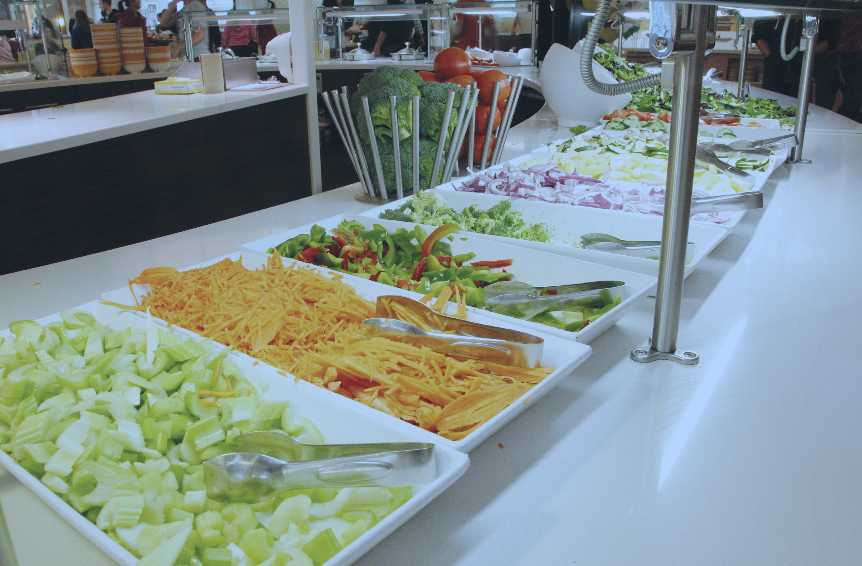Last Thursday, April 19, diners at Bon Appétit cafes around Case Western Reserve University noticed something a little different in the food selection. Instead of serving the usual meats and cheeses, customers were presented with more vegetarian and vegan options, as well as other “low-carbon” choices.
“Low-Carbon Diet Day” was created by Bon Appétit as a national program to minimize its carbon footprint and educate others based on a commitment to lower its impact over five years.
“Low-Carbon Diet Day is really about educating the students about the relationship between food and climate change,” said Beth Kretschmar, Bon Appétit’s marketing manager for CWRU.
“The day is about creating customer awareness through things that customers can do themselves, like buying seasonally and regionally, and moving away from beef and cheese,” she continued.
Bon Appétit’s low-carbon diet has been the first national program to recognize the connections between food and climate change and take the initiative to address the issue. For the past six years, Bon Appétit has been CWRU’s supplier for fresh and sustainable food.
“We really got some good feedback about it,” Kretschmar said. “Every year there are new menus and new chefs involved, [and] the menus get more different and creative all the time.”
Bon Appétit promoted Low-Carbon Diet Day with the “Top 5 Low-Carbon Diet Tips,” which included reducing food waste, purchasing seasonal and local foods, eating less meat and cheese, eating fewer air-freighted foods, and skipping out on the processed and packaged foods.
Low-Carbon Diet Day also highlights the University Farm as a local supplier. “Anything that showcases [Bon Appétit’s] local vendors helps the farm,” said Chris Bond, horticulturist at the University farm. “Their Low-Carbon Diet Day helps increase the exposure to some of the activities we do here.”
In addition to being the sole supplier of fresh herbs to the five Bon Appétit locations, Fribley Commons, Leutner Commons, Tomlinson Marketplace, The Biomedical Research Building, and Grab It, the farm also supplies greens and a number of vegetables.
“I think Low-Carbon Diet Day is an excellent step to drawing awareness to the CWRU community, as to the importance of sourcing your food locally,” he said.
The University farm is growing as a big contributor to low-carbon initiatives. “This year alone, we’re expanding the diversity of the product for the first time,” he said.
“Right now we’re supplying three tons of food per year, [and] this year we may be able to stretch that to about four tons.”
The University farm also has plans in store for new and creative methods of expansion that would help reduce CWRU’s carbon footprint, including expanding its winter growing facilities so non-seasonal produce can be accessed sustainably.
“We’ll be looking into the hydroponic production using Engineers Without Borders,” he said, which would allow produce to be grown indoors, replacing soil with a liquid medium and decreasing the reliance on external climate and soil quality.
“As long as we have the labor to do so, we can keep expanding,” he said. “Anything we do, we’d like to show people how they can do it themselves”
Freshman Student Sustainability Council (SSC) Secretary Brian Weiser also voiced an opinion on using local land to cultivate food and reduce carbon emissions.
“We have over 3,000 acres in Cuyahoga County that aren’t really being utilized,” he said after the SSC brought in a speaker on urban growing. “Cleveland spends a significant amount of money on importing food into the city.”
Bon Appétit will be offering barbeques and a small market table with fresh produce from the University farm throughout the summer, every Wednesday afternoon beginning June 6 through August 1, with the exception of July 4.
“I think the main thing we would like students, customers, and guests to take away from Low-Carbon Diet Day is to realize they can recognize that there is a connection between food and climate change, so it’s little things that you can do,” Kretschmar said.


